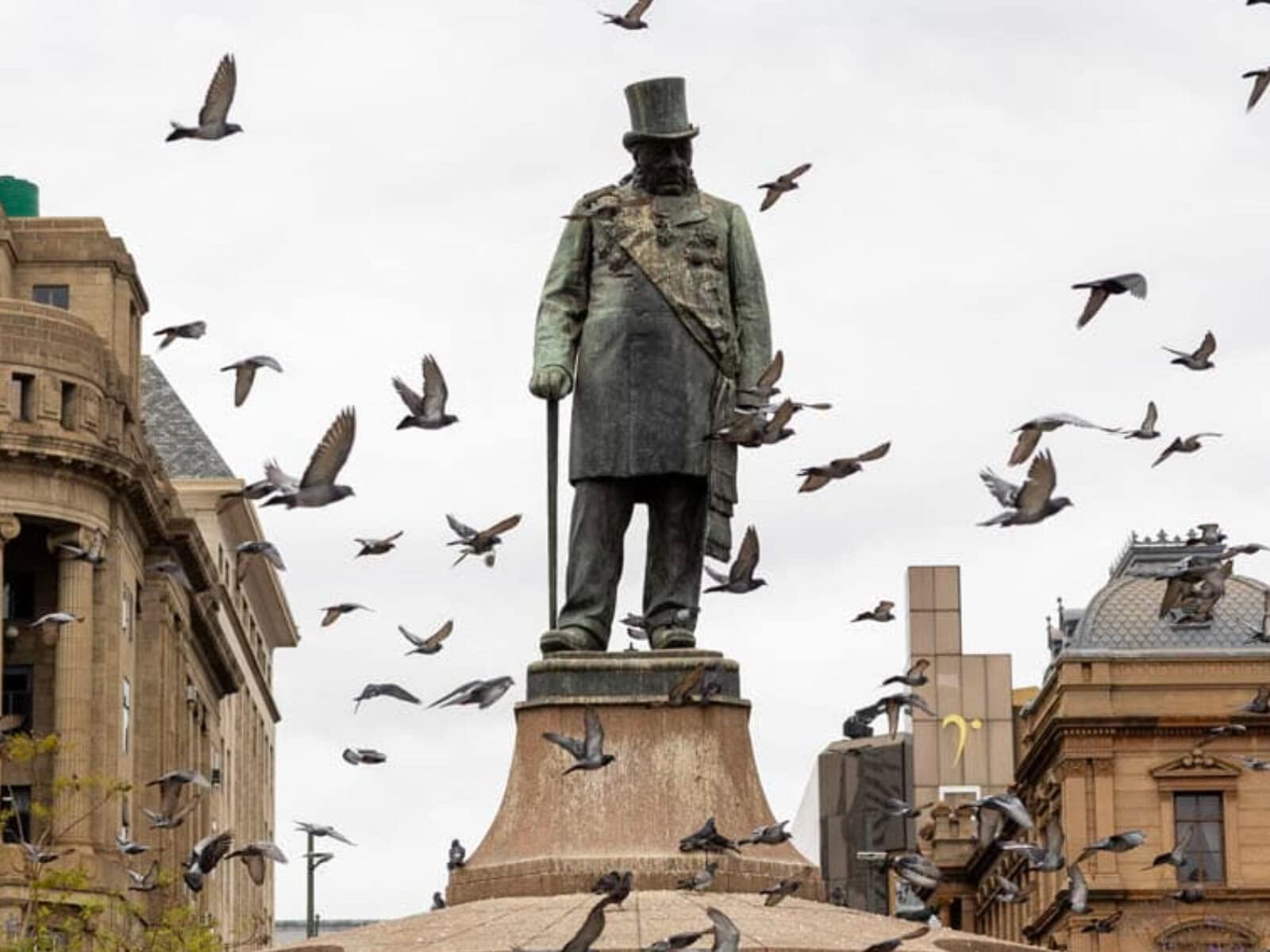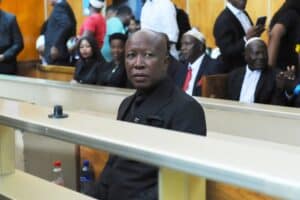EFF's national chairperson takes aim at statutes depicting pre-apartheid leaders, saying they were reminders of oppression.

The presence of statues memorialising South African leaders of the past is a tribute to “psychological and cultural conquest”, says the EFF.
The party last week tabled a draft resolution in parliament to revisit the prevalence of status representing South Africa’s pre-rainbow nation past still displayed in public spaces.
Those downplaying the link between memorials of the past and the realities of today said that building for tomorrow would be a better use of state resources.
Apartheid legacy
EFF national chairperson Nontando Nolutshungu’s draft resolution calls for the establishment of an ad-hoc committee to discuss the memorials.
Nolutshungu argued during a mini-plenary session on Friday that heritage monuments must symbolise dignity and that the presence of these monuments would deal with the “unfinished business of liberation”.
She said that history belonged in books or archives and that the statues went beyond preserving the deeds of the past.
“A statue is never innocent, it is a form of political communication, a claim to space and a declaration of who belongs and who does not,” Nolutshungu said on Friday.
“They are not mutual symbols of history, they are monuments of colonialism and material reminders that, although the political regime of apartheid has been formally defeated, the ideological, cultural and economic structures of conquest remain intact,” she said.
History more complicated
Figures deemed offensive by the EFF include Paul Kruger, Louis Botha, Cecil John Rhodes, Jan van Riebeeck and Queen Victoria.
The Freedom Front Plus (FF+) dismissed the EFF’s draft resolution as a distraction from a stagnating economy and dire unemployment.
Party leader Corne Mulder said that South Africa’s history was more complex than a simple oppressor-oppressed binary.
Using Louis Botha as an example, Mulder cited Botha’s long alliance with King Dinuzulu kaCetshwayo.
Botha is recorded as assisting then-prince Dinizulu in his ascension to the throne over Chief Zibhebhu kaMaphita in the mid-1880s.
Over 20 years later, Botha upon being made Prime Minister of the Union of South Africa in 1910, would release Dinizulu from prison after he had been imprisoned by the British on treason charges.
“In Durban, two statues stand facing each other depicting this remarkable friendship. This is the same Louis Botha whose statue is now suddenly deemed unwelcome,” Mulder said.
Voortrekker Monument
The EFF’s ire is not only raised by the stone effigies of previous leaders, but also by the bricks-and-mortar heart of Afrikaner culture.
“Today, the Voortrekker monument continues to tower over our nation’s capital, a tribute to white supremacy built to glorify the so-called civilised mission of voortrekkers, when in fact they were armed invaders,” said Nolutshungu.
The EFF parliamentarian said spaces should be preserved with images of kings and warriors who fought and died for their people.
“These heroes are either absent or hidden in provincial museums, or relegated to the margins of our heritage,” she said.
Mulder said that dredging up the past would not address the challenging realities faced by South Africans on a daily basis.
“Part of that reality is that the economy has ground to a halt and there is little to no job creation. The FF+ calls on everyone in the country to start building a better future. Nothing can be done about the past,” he said.
Afriforum on alert
Following Nolutshungu’s comments, Afriforum said it would do “everything in its power” to safeguard Afrikaner monuments.
AfriForum head of public relations Ernst van Zyl said that any threat to remove the statues would be an attempted “demolition” of cultural identity.
“Politicians who have proven that they cannot build anything, like the EFF, are simply encouraging destruction and violence.
“Because the EFF has failed to build even one promised school, they are now focusing instead on promises to tear down statues,” Van Zyl said.
NOW READ: EFF to open case against Operation Dudula after death of 1-year-old child






